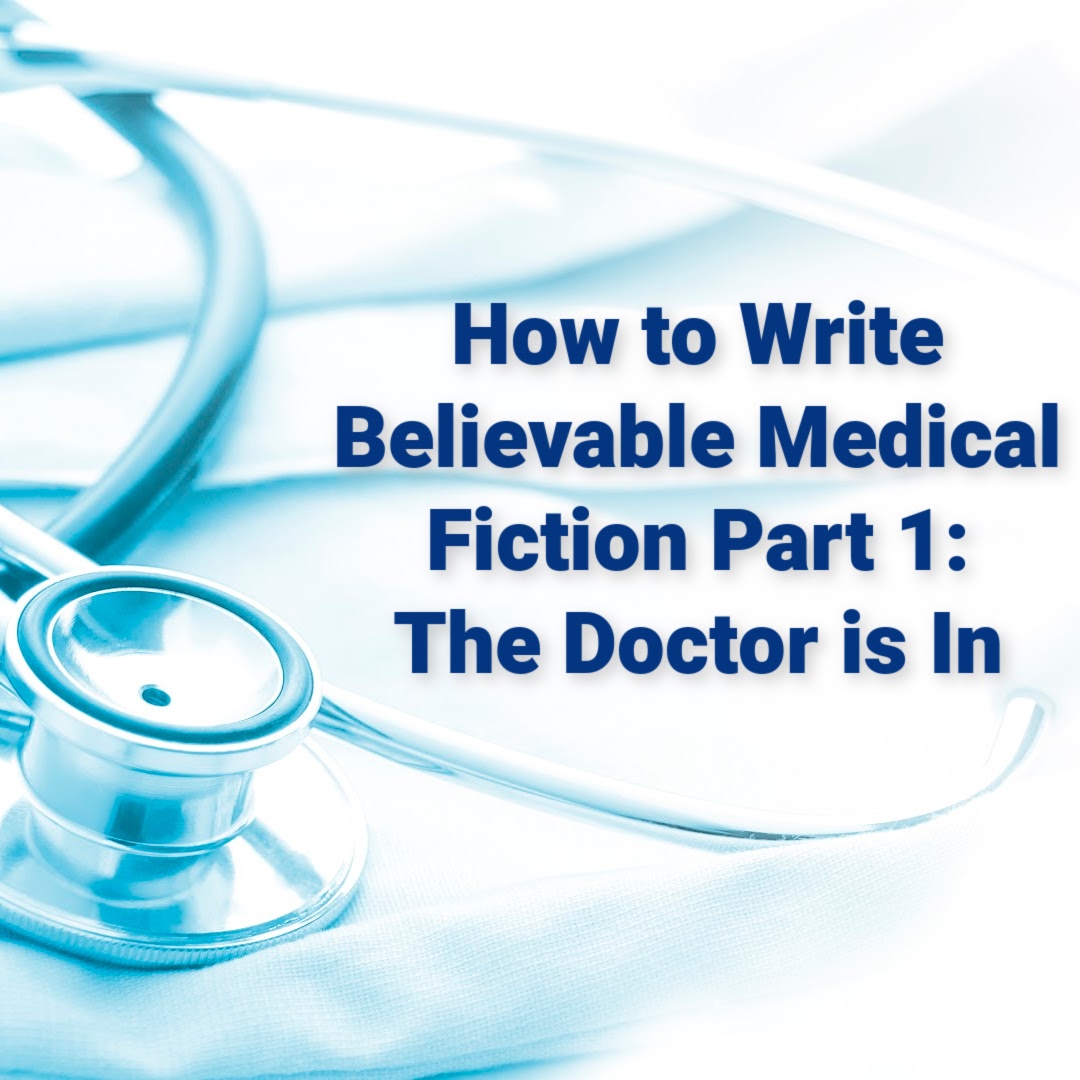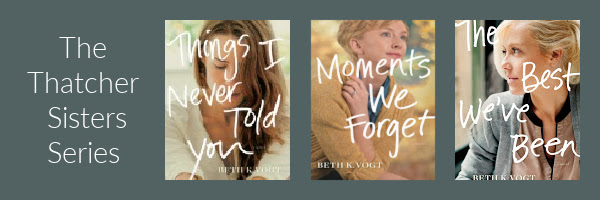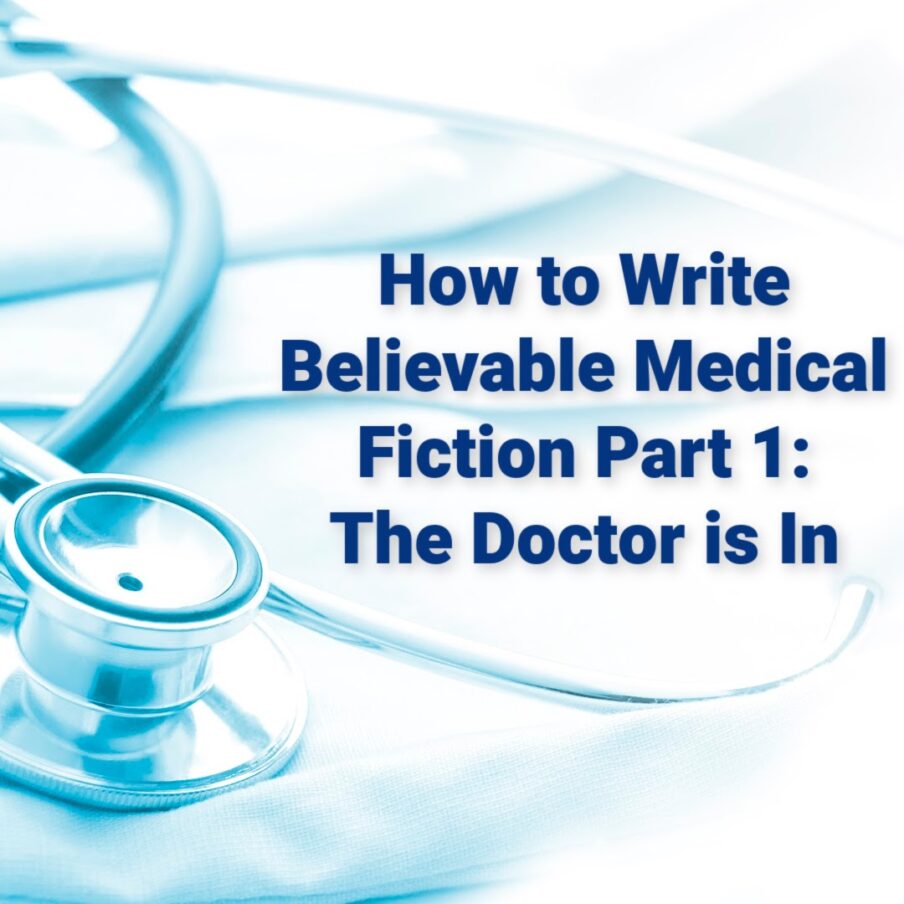
Yes, the doctor is in.
Or rather, the doctor, who happens to be my husband, is helping me write this upcoming 5-part blog series: How to Write Believable Medical Fiction.
Rob has both the medical and literary street cred. He’s a board-certified family physician, and he’s helped me when I’ve added a medical storyline to my novels – most recently, my Thatcher Sisters Series. He’s also consulted with several writer-friends when they’ve had medical questions about their novels – even taking on a fantasy novel. Why not, right?
The one thing you need to know about Rob: he wants writers to get the medical angle in their novels right.
His reasoning? “I don’t want the story to get undermined by inaccurate medical information. Wrong medical data is like writing about a flying car in a current-day story. Cars don’t fly—yet.”

What will we cover in this series?
- How to Write Believable Medical Fiction Part 1: The Doctor is In – The who and why behind this series. Yep, you’re reading it.
- How to Write Believable Medical Fiction Part 2: Doing Your Research – Expanding your research beyond Dr. Google. Get ready for a reliable, physician-vetted list of medical resources.
- How to Write Believable Medical Fiction Part 3: It’s not All About the Drama – Creating tension in a novel doesn’t mean you have to take liberties with medical truth and consequences.
- How to Write Believable Medical Fiction Part 4: Know Your Objective – Are you writing a full-out medical thriller? Or are you weaving in a medical issue as a subplot, as another point of tension?
- How to Write a Believable Medical Fiction Part 5: Faith Versus Science – You’ve added a medical thread to your novel. Or maybe that’s the whole point of the book. The challenge is: Is there a treatment? Does it work? Do your characters pray and believe for healing?
The Thatcher Sisters Series

The Thatcher Sisters Series, published by Tyndale House, is a three-book “Little Women gone wrong” women’s fiction collection. Examining the complicated relationships between sisters, the series includes Things I Never Told You, which won the AWSA 2019 Contemporary Novel of the Year, Moments We Forget, and The Best We’ve Been, a 2021 Selah finalist.

is a non-fiction author and editor who said she’d never write fiction. She’s the wife of an Air Force family physician (now in solo practice) who said she’d never marry a doctor—or anyone in the military. She’s a mom of four who said she’d never have kids. Now Beth believes God’s best often waits behind the doors marked “Never.”
Beth is a 2016 Christy Award winner, a 2016 ACFW Carol Award winner, and a 2015 RITA® finalist. Her 2014 novel, Somebody Like You, was one of Publisher’s Weekly’s Best Books of 2014. A November Bride was part of the Year of Wedding Series by Zondervan. Having authored 10 contemporary romance novels or novellas, Beth believes there’s more to happily-ever-after than the fairy tales tell us.
An established magazine writer and former editor of the leadership magazine for MOPS International, Beth blogs for Learn How to Write a Novel and The Write Conversation and also enjoys speaking to writers group and mentoring other writers. She lives in Colorado with her husband Rob, who has adjusted to discussing the lives of imaginary people. Connect with Beth at bethvogt.com.

Comments 4
I am so excited about this series, Beth. My husband is also a physician, and we are planning to embark on writing a medical thriller together. So your post is quite timely.
Blessings,
MaryAnn Diorio
Beth, It’s a struggle sometimes when I know what I want to include because of research that I did, only to hear from my dear, sweet wife (who is my first reader) that I’ve used a comma incorrectly. But after a bit of pouting, I’m over it. You all must have some interesting talks about good writing and medical aspects. Lots of luck to you both.
Beth, Good luck to both of you, and since your marriage is strong, this probably will work for you both. But it can make for some interesting conversations between writer and physician.
Thank you. My challenge, as a practicing internal medicine physician, is that the story I’m writing is set in the 1750s, so my current medical knowledge is of little use in crafting a good story set around an epidemic. Any suggestions?